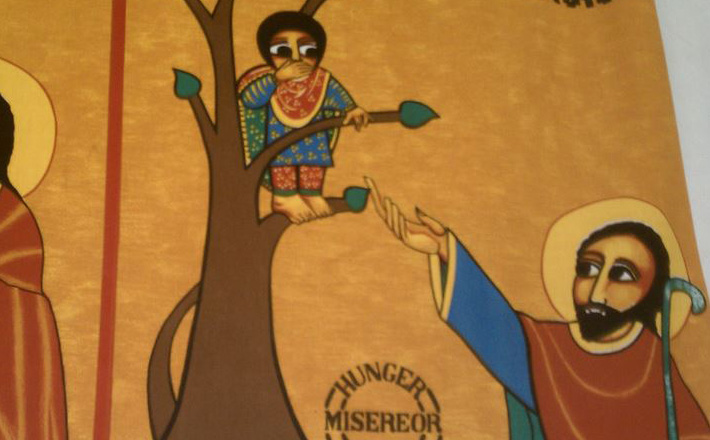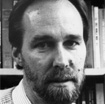Commentary on Habakkuk 1:1-4, 2:1-4
The heading for the book of Habakkuk reads: “The oracle that the prophet Habakkuk saw.”
The heading is distinct but not without parallels elsewhere. Other prophetic books are labeled as oracles (Nahum and Malachi) or lack any mention of date (for example Obadiah, Joel, and Jonah). The jarringly distinctive feature of Habakkuk is that it starts with words addressed to God.
The “oracle that the prophet Habakkuk saw” is not first a message from God that Habakkuk delivers to a human audience. Beyond that, the content of Habakkuk’s address to God is deeply disruptive. While objections are expressed in prophetic call narratives (for example Jeremiah’s assertion that he is too young [Habakkuk 1:6]), Habakkuk’s words are the bold speech of lament psalms. They challenge God’s conduct toward the community, not merely God’s decision to call an individual.
The classic expression “How long?” is coupled with accusations charging God with a failure to listen and save. The prophetic voice (the “I” in the text) has cried for help and specifically cried to God, the addressee (the “you” in the text). This is more than a generalized groan in the midst of pain and suffering; it is directed groaning. There is an addressee, namely God. Compare Psalm 88:13 and Lamentations 3:8 to capture the intensity. Compare the promise of Isaiah 58:9 to grasp the seriousness of the charge of not listening and not saving. This lament (or any biblical lament for that matter) should not be reduced to a permission to doubt or a warrant for therapeutic venting.
Wrong-doing, trouble, destruction, violence, strife, and contention — that is a long list of societal ruptures that persisted in the prophet’s world. They persist in our world as well and we can (and must) give specific names to the victims. Naming individuals and communities precludes spiritualizing the text into a hyperbolic abstraction. When God does not listen and does not save, there is room for societal evils to exist unhindered. The prophet pushes the language into boldly stated petitioning and accusing. Embedded in the “how long?” is both prophet’s charge that God does not listen and does not save and the assertion that God causes the prophet to see and look at the evil.
Consider the quotation often attributed to Bonhoeffer: “Silence in the face of evil is itself evil: God will not hold us guiltless. Not to speak is to speak. Not to act is to act.” The prophet Habakkuk flips the quotation. His lament holds God responsible. God’s silence and inaction is intolerable in a covenant relationship. If God is not engaged, the world implodes. For Habakkuk the implosion is occurring. Six words, starting with “wrong-doing,” describe the implosion (Habakkuk 1:3). Verse 4 drives home the message: Justice never goes forth (New Revised Standard Version: prevails); justice goes forth twisted/crooked/bent out of shape (NRSV: perverted). The law is malleable (NRSV: slack); the wicked surround the righteous, eager to devour (see also Psalm 22:11-13). The defenses against evil are coopted and shaped to the advantage of the wicked; the language of justice becomes double-speak and the righteous are left at the mercy of the wicked.
The verses selected in the lectionary significantly distort the impact of the opening lament. Both the divine response (Habakkuk 1:5-11) and the renewed lament (1:12-17) are deleted. Chapter 2 opens with the prophet pledging to keep watch to see what God will say in response to his complaint. But this is not, however, the complaint in 1:2-4 as the lectionary selection now implies; it is the second complaint in 1:12-17. The second complaint responds to God’s response to the first complaint. Habakkuk 1:5-11 announces, contrary to Habakkuk’s assertion that God is indifferent to the societal collapse he is experiencing, that God is instead rousing the Chaldeans to bust the stranglehold the wicked have on the righteous. “A work is being done in your days that you would not believe if you were told” (1:5) — but, of course, now Habakkuk is being told. A different sort of disbelief will emerge, namely, that a righteous God could use violence to the magnitude exercised by the Chaldeans to redress the violence occurring in his own community. The Chaldeans are even less restrained in their violence than the wicked in Habakkuk’s community. No law restrains them; no kings or rulers inhibit their spreading, violent conquests. They answer only to themselves for their might has become their god.
Habakkuk objects to this form of breaking God’s silence and inaction. He states clearly what he confesses God to be in God’s essence (“from of old”): God marks the violent for judgment and for punishment (Habakkuk 1:12). God is a God of justice and therefore it is out of character to endorse imperial tyranny and exploitation. Surely, Habakkuk complains/laments, God ought not look with indifference on this uncontrolled violence. In these circumstances, people become like fish that have no ruler (1:14) and, worse, are defenseless against the ravenous nets of tyrants whose appetites are never satisfied and who know no mercy. The Chaldean “cure” is comparable to death itself (2:5). Habakkuk cries out against the response to his first lament: God, how can you abide (and summon) such treachery? The concluding question implies that it is unthinkable that God would standby while the Chaldeans continue to destroy nations without mercy.
As chapter two opens, Habakkuk awaits God’s response as a guard posted to alert a threaten community. The image is not one of docile submission. God answers Habakkuk’s second lament, but the content of the response is elusive. He is to record a vision for an “appointed time” which speaks of an “end.” Both Habakkuk and the reader are instructed to “wait” when the events of the vision seem to take an eternity to come about and, at the same time, are assured that the events will not delay — they will come. What is one to do as one waits for what will not delay?
The condition is resonant with the already-not yet of the New Testament: Christ has come and death has been defeated and yet life continues to be deathly and violence terrorizes community after community. We have been granted a vision that does not lie but has yet to be brought to completion. The righteous do live by faith because the vision is still in large measure a promise yet to be fulfilled. The wicked, on the other hand, remain restless; there is a premonition that their dominance has a term-limit. Wickedness never has enough; its voracious destructiveness is a sign that it has not secured its future (as Habakkuk 2:5 underscores). It knows nothing of trust. Its greatness and exceptionalness cannot mask the lack of a right spirit. The “alas” statements and the mocking of idol making in the remainder of chapter two underscore the instability of the wicked.
Habakkuk 3 ends with a similar double focus. Many allusions in the poem slip from our exegetical grasp, but it clearly recollects moments of deliverance that the prophet desires to have done again in his own time (3:2). He pleads for mercy within the wrath that will come with judging deliverance (“In wrath remember mercy” [3:2]). Hearing the ancient hymn commemorating past deliverance — and by implication promising a new deliverance — leaves the prophet trembling, with lips quivering. There is not a triumphant cry of vindication; rather there is quiet waiting (3:16). This waiting includes rejoicing and exultation (3:18). Quiet waiting knows the injunction to keep silence (2:20) and it also rejoices. There is nothing Pollyanna or naïve about this rejoicing for it also knows that the days of fig trees that do not blossom and flocks with folds are not at an end. The righteous live by a faith that does not refrain from bold lament as exultantly rejoices.


October 30, 2016